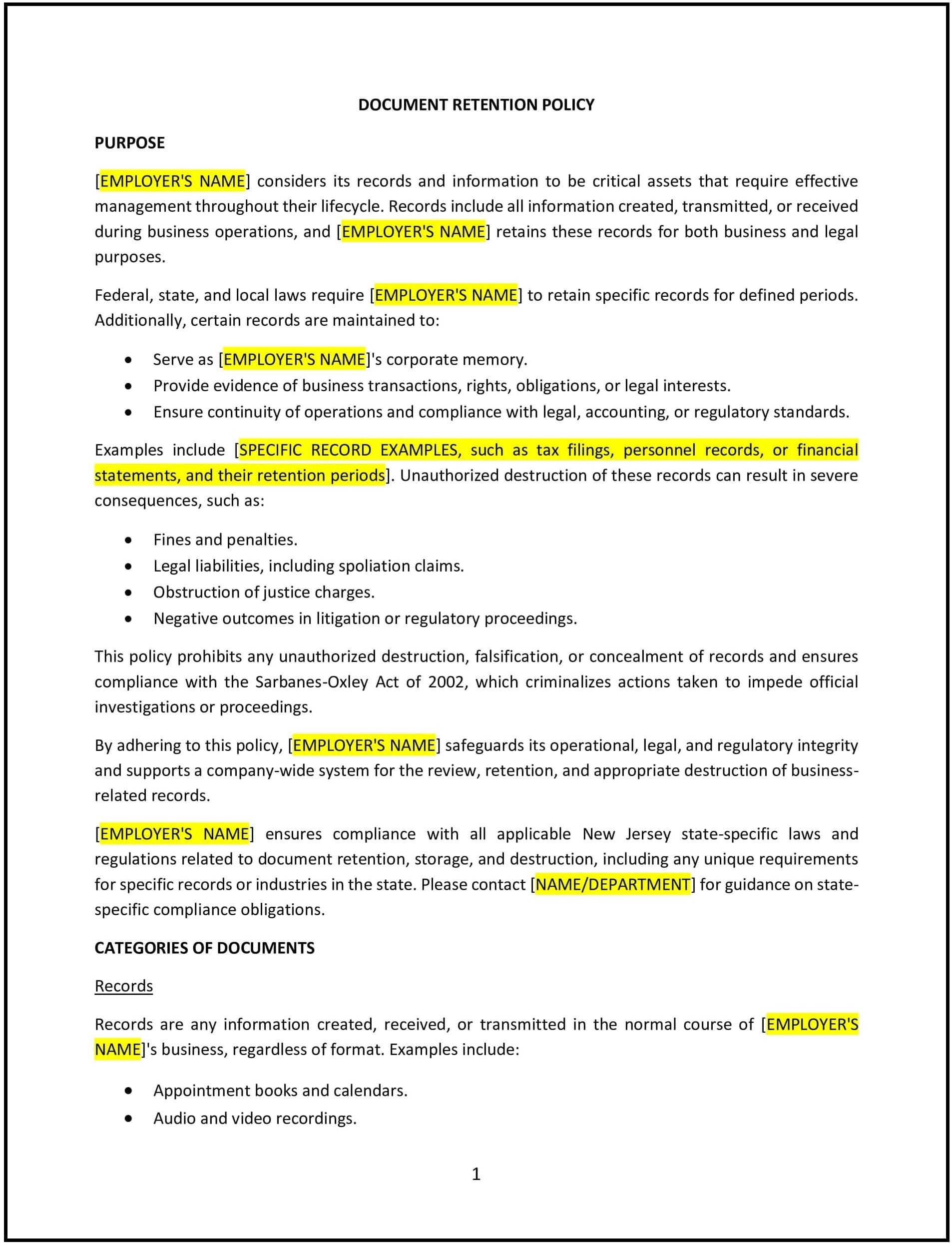Document retention (New Jersey) policy: Free template
Got contracts to review? While you're here for policies, let Cobrief make contract review effortless—start your free review now.

Customize this template for free
Document retention (New Jersey)
A document retention policy helps New Jersey businesses establish clear guidelines for storing, managing, and disposing of business records. This policy outlines how long different types of documents should be retained, the proper methods for secure storage, and procedures for document disposal. It also provides guidance on handling digital and physical records to support efficient business operations and protect sensitive information.
By adopting this policy, businesses in New Jersey can improve record-keeping practices, reduce storage costs, and maintain organizational efficiency.
How to use this document retention policy (New Jersey)
- Define the types of records covered: Identify the categories of documents included in the policy, such as financial records, employee files, contracts, tax documents, and customer data.
- Establish retention periods: Specify how long each type of document should be retained based on business needs, industry standards, or legal considerations.
- Outline storage procedures: Provide guidelines for storing records securely, whether in physical filing systems or digital formats with encryption and backup measures.
- Implement access controls: Restrict document access to authorized personnel to protect confidential and sensitive information.
- Set disposal and destruction guidelines: Establish safe disposal methods for outdated or expired records, such as shredding physical documents or securely deleting electronic files.
- Address litigation hold procedures: Explain how businesses should preserve documents in the event of legal action or regulatory investigations.
- Monitor and update retention schedules: Regularly review and update document retention timelines to reflect changes in business needs and New Jersey-specific regulations.
Benefits of using this document retention policy (New Jersey)
This policy provides several benefits for New Jersey businesses:
- Reduces storage costs: Eliminates unnecessary document retention, freeing up physical and digital storage space.
- Improves organizational efficiency: Streamlines document management by defining clear retention and disposal processes.
- Protects sensitive business data: Ensures confidential information is stored securely and disposed of properly.
- Enhances legal preparedness: Provides structured record-keeping in case of audits, disputes, or regulatory inquiries.
- Prevents information overload: Helps businesses maintain organized and easily accessible records.
Tips for using this document retention policy (New Jersey)
- Communicate the policy clearly: Ensure employees understand how to classify, store, and dispose of documents based on retention schedules.
- Use digital solutions for storage: Consider document management software to securely store and track retention deadlines.
- Train employees on data security: Provide training on handling sensitive information and preventing unauthorized access.
- Assign responsibility for document management: Designate an employee or department to oversee retention schedules and disposal practices.
- Review the policy regularly: Update the policy as needed to align with changes in business operations, storage technology, or New Jersey regulations.